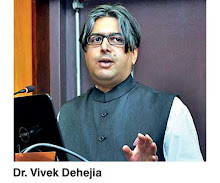Well, perhaps that was a slight exaggeration in the title, but not by much. I've been struck by how rich the content of the recitatives in Mozart operas actually are. In bad, or badly prepared, performances, they're rushed through at high speed, sometimes almost unintelligible. Sometimes, often for practical, logistical reasons, the conductor will depute a répétiteur to prepare the recitatives. Michael Haneke once remarked that it would be better to do away with them altogether, if that's how they are treated. His filmed performance of "Così fan tutte" makes much of the recitatives, proving that he practices what he preaches.
I sometimes am struck by small details in the recitatives. Signifying, perhaps nothing, perhaps everything.
In Act 3 of "Le Nozze di Figaro", the Countess bemoans her state, in the celebrated accompanied recitative and aria, "E Susanna non vien - Dove sono i biei momenti". The last line of the accompanied recitative reads thus:
"Che dopo avermi con un misto inaudito d'infedeltà, di gelosia, di sdegni - prima amata, indi offesa, ed alfin tradita - fammi or cercar da una mia serva aita!"
In dense summary, she's unhappy that, due to the Count's infidelity, she's forced to rely on her servant for help. Now, most performers deliver this last line of the recitative, before jumping into the aria, without any particular emphasis. However, there's one (at least one that I know of) sparkling exception. The late, great Swiss soprano, Lisa della Casa, puts a special emphasis on the penultimate word of the recitative, "serva", literally pouring scorn into the word. Recall, this is the upper middle class young woman who married into aristocracy (think back to "The Barber of Seville"), and now she realizes that her class privilege is imperilled by her husband's bad behaviour. Listen to it here, in the classic Erich Kleiber recording from Vienna.
Very few performances, or recordings, pick up on this small interpretative nuance. Indeed, when della Casa recorded the role again, again in Vienna, with Erich Leinsdorf, she didn't repeat it. But this is unforgettable.
************************
Here's the second case study. In Act 1 of "Don Giovanni", the eponymous protagonist is trying to convince the young peasant woman, Zerlina, that he should trust her and accompany him on a romantic tryst. She tells him that she's heard that noblemen aren't to be trusted. This is all before one of the most famous duets in all opera, "La ci darem la mano". But what interests us here is the secco recitative that precedes the duet. After Zerlina expresses her concerns, this is what Giovanni tells her:
È un impostura della gente plebea! La nobilità ha dipinta negli occhi l'onestà."
Roughly, this is a lie perpetrated by lower class folk, he tells her. Nobility can been seen in one's eyes. Many performers sing this bit of secco recitative without any particular emphasis. But, the great Italian bass-baritone, Ruggero Raimondi, gives this line particular emphasis. In particular, he (subtly) stresses the adjective "plebea". Listen here.
The scorn for the low born is evident. This was two years before the French Revolution.
Everyone, notably the late, great American scholar, Charles Rosen, rightly points to "Viva la liberta", towards the end of Act 1, as a signal of where the sympathies of Mozart and Da Ponte lay. But -- this little bit of secco recitative, from the Don, a little earlier in the act, tells us that the class war has been fully joined, by both sides. And, please remember, that the Bourbon dynasty, toppled in 1789, returned, "in the baggage train of the Allies", in 1814. Plus ça change...

No comments:
Post a Comment